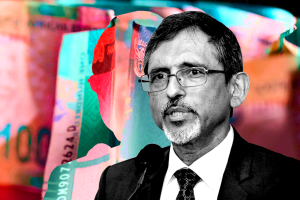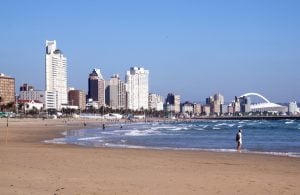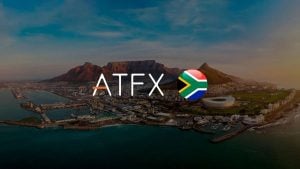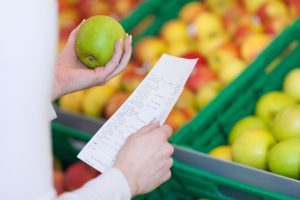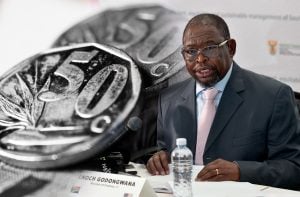Budget 2023 review: A balancing act with red flags in each hand
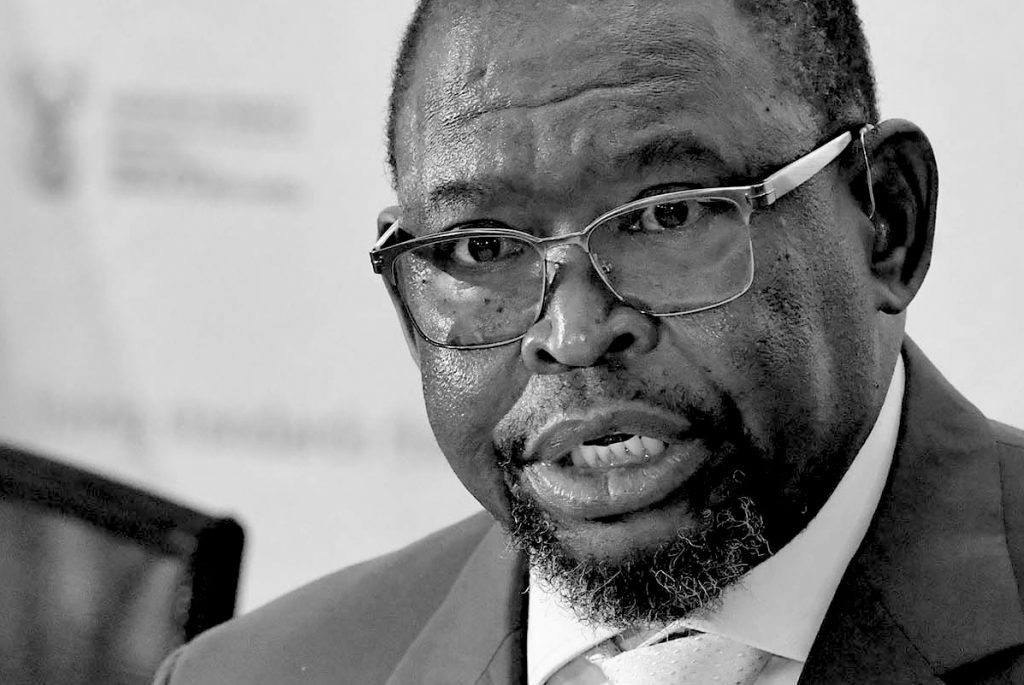
Finance minister Enoch Godongwana delivered his national budget speech on Wednesday (22 February) with mixed reactions from various industries and analysts.
Overall the responding sentiment was broadly positive, with many reactions praising the incentivisation of rooftop solar, energy support packages as well as relief in terms of personal income tax.
What stirred the most concern, however, was the plan to settle the billions of rand debt of failing national power utility Eskom alongside the acknowledgement of a potential greylisting with little worry.
Patrick Buthelezi, an economist at Sanlam Investments, said that despite challenging economic conditions, the finance minister reported good fiscal metrics, with the budget deficit being smaller than last year’s medium-term budget policy statement, with further narrowing to roughly 3.3% expected by 2025.
Concern was raised about the government’s overly optimistic outlook on the growth of the economy.
Yolandi Esterhuizen, Director of Product Compliance at Sage Africa noted that the finance minister and National Treasury’s tax proposals are based on economic forecasts that are more optimistic than the South African Reserve Bank’s (SARB) latest forecast.
“The NT forecasts GDP growth for 2023 of 0.9%, and SARB forecasts 0.3%. While the budget does an admirable job of keeping taxes down, we urgently need to catalyse growth to put South Africa on a more sustainable economic footing.”
According to Maarten Ackerman, the chief economist at Citadel, this optimistic view poses a risk to the fiscal outlook. If the country does not achieve the projected growth, many assumed metrics will look worse, and economic objectives will not be achieved reached.
“Whilst it is a good budget considering the situation we are in, there is significant downside risk ahead,” he said.
“We are in a tight corner and if we don’t stimulate growth, South Africa will come dangerously close to another debt spiral, like we experienced a few years ago, and with interest rates much higher this time around, it’s really not a good position to be in, in terms of the potential downside risk.”
This risk has to be seen in the context of the South African government’s debt servicing costs having increased to R1 billion per day.
Summarily, this year’s budget was deemed “balanced” by the majority of analysts; however, as usual, more could have been done, with many steps taken forward being small and not as impactful as they could have been.
Eskom bailout
The energy crisis was a hot topic during the budget speech, and the finalisation of long-term plans to bail out Eskom has raised eyebrows, despite showing decisiveness by the government to tackle the thorn in South Africa’s side.
The primary concern with the clarity given on the plans to bail out Eskom is the increased debt it will add to the government’s expenditure, which is already stretched and is servicing various other projects, including the ever-growing social wage.
The chief investment officer at Citadel, George Herman, warned that the increased funding requirements placed on the government to finance the bailout R254 billion bailout would place pressure on the bond market. If Eskom were to fail, it would still be left to repay the loans it took to pay for the bailout.
Berry Everitt, the CEO of the international property group Chas Everitt, said that the bailout is money that should have otherwise been spent on economic expansion, and the increase in government total debt to around R5.8 trillion over the next three years makes the country less attractive to international investors.
Rooftop solar
Tax incentives for households to install solar panels and businesses to invest in renewable power generation was a big step forward by the government, said Everitt.
“Households will, for the next year, be able to claim a rebate of 25% of whatever they spend on panels, capped at R15 000,” said the CEO.
The property sector does, however, hope a similar rebate will be introduced in future for storage batteries, which are generally the most expensive components of domestic solar power systems.
Tertius Troost, a senior manager of tax consulting at Mazars, said that the incentive would probably not be enough for more households to invest in solar energy; however, it is a good step towards real progress.
The solar PV association SAPVIA said that the incentive was a step in the right direction, but did not go far enough. The maximum rebate of R15,000 on a solar spend of R60,000 was out of step with most installations, it said. Most households spend a minimum of R95,000 and go upwards of R200,000, it said.
Godongwana’s other incentive – the one focused on businesses and commercial operators – was more well-received.
Yael Geffen, the CEO of Lew Geffen Sotheby’s International Realty, said the fact that commercial enterprises are now being offered a 125% rebate of the cost for wind, solar, hydropower and biomass projects for the first year is a huge incentive for businesses to become more sustainable for the long run.
Social spending
Social groups have welcomed the increases to social grants in South Africa, as well as the extension of the SRD grant and the government’s plans to find an alternative to this grant when it comes to an end.
According to Sean Segar, Co-Head of Cash Solutions, Nedgroup Investments, the social spending is only focused on short-term wins, however, and doesn’t address the root cause of the problems in the country.
“Social grants are a short-term relief, and they are not solving the long-term problem for people. While they do contribute to the economy in the form of helicopter money, they often tend to be a political tool instead of actively encouraging economic growth, which is what we need to truly improve the lives of most South Africans,” he said.
He said that money should rather be spent on infrastructure projects that create long-term employment. “It seems that the master plan to grow the economy, and to reduce poverty and unemployment is missing,” he said.
Tax relief
No increase to the general fuel levy and only inflation-related increases to sin taxes were welcomed words for cash-strapped South Africans.
Under the budget, no changes were announced to things like state duty or capital gains tax.
Johann van Tonder, an economist at Momentum Metropolitan, said that the government has been able to provide personal income tax relief to consumers at large, which is positive news.
Bertie Nel, the head of financial planning at Momentum, added that governments’ efficiency in tax collection had given leeway for fewer increases in consumer taxes.
“This will give consumers in an already pressured environment some relief as they won’t have to pay additional taxes,” said Nel.
Discovery Health welcomed that adjustment to medical aid tax credits, saying this will help many members retain their health cover.
“We hope that the proposals to expand access to lower cost medical scheme cover will allow more tax-payers being able to get the benefit of this valuable support for accessing cover,” it said.
The South African Sugar Association (SASA), the body representing and providing support to the sugar industry, was also welcoming of the decision to hold the health promotion levy at current rates for the next two years.
While the tobacco and alcohol industries will be seeing tax hikes, the Beer Association of South Africa said that the hikes are in line with inflation – and not higher than inflation as has been done in the past – which is actually a relief for the sector.
Two-pot retirement system
The finance minister has increased the tax-free lump sum that retirees can claim to R550,000 – putting more money in the pockets of cash-strapped consumers.
Mike Teuchert, the head of taxation services at Mazar tax experts, said that retirees will now enjoy moderately higher withdrawal benefits with the inflationary adjustments.
Some commentators, however, would have liked to see a bigger increase.
Yolandi Esterhuizen, Director of Product Compliance at Sage Africa, said the two-pot system looks like it will now also face a delay.
“The draft legislation was initially intended to be implemented in the 2023/24 year of assessment and was later moved to the 2024/25 year of assessment. With the minister mentioning that NT is re-evaluating the draft legislation, it seems unlikely that it will now be implemented in the 2024/25 year of assessment,” she said.
Greylisting
According to Hannes van der Berg, the CEO of Consult by Momentum, concern surrounds the imminent greylisting – poised to make doing business in South Africa harder than usual.
He said that the minister’s closing comments implied that this would soon be a reality, which will make offshore investment far more challenging for South Africans. In addition, it will place a massive administrative burden on the financial services sector.
Sanisha Packirisamy, Economist at Momentum, said that, although the negative growth implications of more intense load shedding pose a risk to the near-term outlook on sovereign ratings, we expect the rating agencies to keep their ratings intact.
“Moreover, rating agencies are not likely to alter SA’s rating solely based on the outcome of the greylisting decision of the Financial Action Task Force.”
